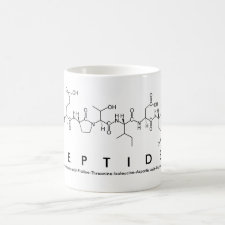
Authors: Liang HJ, Ling TR, Rick JF, Chou TC
Article Title: Molecularly imprinted electrochemical sensor able to enantroselectivly recognize d and l-tyrosine.
Publication date: 2005
Journal: Analytica Chimica Acta
Volume: 542
Issue: (1)
Page numbers: 83-89.
DOI: 10.1016/j.aca.2005.02.007
Alternative URL: http://www.sciencedirect.com/science/article/B6TF4-4FPYWSM-1/2/8b4b6556b12dd02b215bc2eb0427854e
Abstract: Electrochemical sensors were fabricated on nickel electrodes by molecularly imprinting d and l-tyrosine on polypyrrole films to form complementary cavities for subsequent template recognition. The performance of the imprinted films was evaluated by coulometry using an applied positive potential to induce adsorption of the target molecules. Using this procedure high enantioselectivities was found for each imprinted film. The individual selectivities for l and d-tyrosine on their respective imprinted films were estimated to be l/d = 9.4/1 and d/l = 27.2/1, determined by applying potential at a sweep rate of 0.1 V/s from -0.1 to 0.5 V (versus Ag/AgCl) with the two enantiomers being present at the same concentration (5 mM). Several factors affecting rebinding, such as extraction time, film thickness, template concentration and sweep rate were investigated to achieve optimum recognition ability. The diffusion of target molecules in the polypyrrole films was also examined. A recognition mechanism for the interaction of the polypyrrole film for its template under the influence of an applied positive potential is proposed in this study
Template and target information: tyrosine
Author keywords: molecular imprinting, Electrochemical sensor, polypyrrole, tyrosine



Join the Society for Molecular Imprinting

New items RSS feed
Sign-up for e-mail updates:
Choose between receiving an occasional newsletter or more frequent e-mail alerts.
Click here to go to the sign-up page.
Is your name elemental or peptidic? Enter your name and find out by clicking either of the buttons below!
Other products you may like:
 MIPdatabase
MIPdatabase









